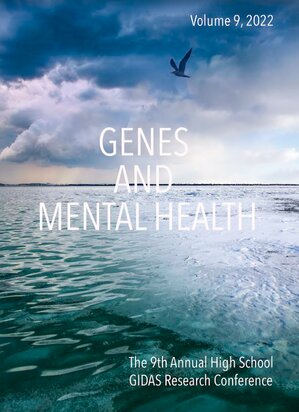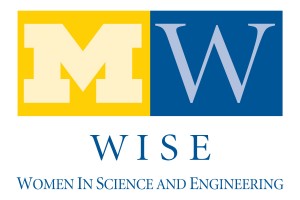The Ninth Annual High School GIDAS Research Conference
This year’s conference is on June 11, 2022; the theme is Genes and Mental Health.
Keynote Speaker
Photo Credit: Kennedy Krieger Institute
Jonathan Pevsner, Ph.D.
Chief of Genomics Research Branch, National Institute of Mental Health, NIH
Date: June 11, 2022 (Saturday), 12:30 – 5:30 pm Eastern Time
Location: Online
Open to the public, including middle school students and adults.
To register, first use the button above before paying below.
Do you like science and computers? Are you interested in discovering relationships between genes and diseases?
Come to the High School Students’ Research Conference and find out what other students are investigating.
This conference is designed to provide young students with experience in a research conference setting to promote learning and interest in science and research.
2022 Conference Agenda
| 12:30 pm | Registration |
| 12:45 pm |
Workshops
|
| 1:30 pm | Greetings from miRcore President Inhan Lee, Ph.D. |
| 1:35 pm |
Student Oral Presentations I Session Chair: David Burke, Ph.D. Professor of Human Genetics, University of Michigan
|
| 2:15 pm | Break |
| 2:20 pm |
Poster Session |
| 3:20 pm | Break |
| 3:30 pm |
Keynote Address: Genes and Mental Health Jonathan Pevsner, Ph.D.Chief of Genomics Research Branch, National Institute of Mental Health, NIH |
| 4:15 pm | Break |
| 4:30 pm |
Student Oral Presentations II Session Chair: Jun Li, Ph.D. Professor of Human Genetics, University of Michigan
|
| 5:15 pm | 2021-22 GIDAS Activity Reports and Conference Awards |
| 5:40 pm | Closing |
If you present, you will
– Meet professional scientists and connect with peers who share your interest in science
– Grow in professionalism through researching, writing, and presenting on science topics
– Develop public speaking skills in a larger group setting
– Compete for science presentation awards
Your 2022 conference presentation should address some genetic aspect of Mental Health (or a related field).
Oral Presentations
We select 10-12 oral presentations among abstracts submitted by May 15, 2022. We thank all, abstract judges, for their scoring the abstracts. Certificates will be given to the best three presenters/groups based on their scores.
Poster Presentations
All poster presenters (including Honorable Mention) should prepare a five-minute (maximum) presentation to pitch their research to conference attendees (flexible format; simply deliver the content in an engaging way). All poster presenters should submit their final presentation materials by 11:59 pm (ET) on June 9, 2022 to the submission forms sent to authors to be assigned to judges.
Poster Judges
These professionals will engage each poster presenter in discussion about their research and provide feedback.
Popular votes
The general audience will also vote on poster presentations.
Certificates
Certificates will be given to the best three poster presenters/groups as graded by the judges; the three most popular posters, as selected by conference attendees, will also receive certificates.
2022 Conference Awards
The Most Popular Poster
1st: “Upregulation of Cholesterol Metabolism Pathway in Response to Bipolar Disorder” – Sudeshna Kumar, Samantha Luke.
2nd: “Activation of MAPK Pathway in Late Onset Major Depressive Disorder” – Andreanna Ulery, Rafe Symonds, Tanay Dakarapu.
3rd: “The Role of Ubiquitination in Bipolar Disorder” – Varshini Kashyap, Yara El-Sheikh, Anya Malhotra, Safir Rahman, Kevin Chen, Dhivya Bala.
“Bipolar Disorder’s Effect on the Diagnosis of Parkinson’s Disease” – Charlie Dolce, Jacob Shamoun.
“Targeting Influenza A Pathways in Relation to PTSD and Their Role in Samples Pre-Deployment” – Tanvi Madugonde.
The Best Poster Presentation
1st: “Fc gamma R-mediated phagocytosis is dysregulated in MDD patients” – Shrinitha Balraj, Anita Gaenko, Derek Ryan.
1st: “Upregulation of RELA in Bipolar Disorder and NAFLD” – Grace Costello, Kennedy White, Sakshi Bharambe.
3rd: “BDNF to affect the Glutamatergic Pathway” – Annaka Saffron, Amelia
Saffron , Aanchal Jain, Shikha Nukala, Stephanie Han.
Honorable Mentions:
“Differentially Expressed Genes Identify Co-morbidities Associated with Bipolar Disorder” – Dhruva Gopalakrishnan, Amelia Saffron, Tushar Thoppae, Rishika Goteti.
“Downregulation of Oxidative Phosphorylation Genes in Autism” – Vidhi Kulkarni.
The Best Research Paper Awards
1st: Noah Black, Christine Cai, Sophie Cai, Alana Schroden. Betweenness Centrality in Weighted PPI Network Identifies Critical Genes and Potential Drugs for Major Depressive Disorder.
2nd: Anura Deshpande, Lana Smith, Annaliese Figurski, Ally Wang, Aishwarya Shivaraman, Akshara Sankar, Areeba Maysun. Downregulation of CD74 and HLA-DRB5 in Schizophrenia and Negative Association with Immune System.
3rd: Aleen Jude, Vivian Long, James Xiao, Ankita Kaul, Rhea Hede-Sakhardande, Lindsey Shereda. Mitochondrial Function and Bipolar Disorder.
Conference Proceedings
Cover designed by Stephanie Prechter
If you want to publish your abstract in the conference proceedings, please submit your research abstract and your “About Me” with your picture in Word format by May 15, 2022 (refer to “Abstract Submission”).
Even if you miss the deadline to publish, you can still bring in your research poster and compete for the poster presentation award. However, you should submit your poster abstract content to us by June 5, 2022 to be considered for a poster presentation (judge assigned).
Abstract Submission
Abstract Guidelines:
You can find them here.
File Submission: Registered presenters will be contacted for the file submission.
Poster
Poster Guidelines:
Due to the coronavirus, the conference will be online. Please prepare a presentation no more than 10 slides in length (not including the title and ending slides), aiming for a presentation time of about 5 minutes.
Past Year Conferences
Click here to view the booklets from past conferenes.
Here you can find information about the conferences from past years.







